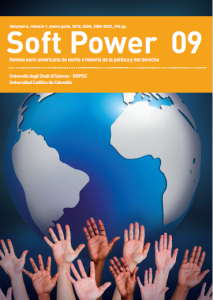Resumen
Empowerment, resilience and poverty reduction strategies seem to be bound by
mutual exclusion. Through poverty reduction and empowerment, people escape poverty and precarization processes by acquiring capabilities that give them both economic and existential stability; in a word, they acquire human resilience. Nevertheless, the relationship between the three concepts and their corresponding practices is characterized by a complementary link that works as a matrix of neoliberal subjectivation processes that involve both men and women on a global level. Said link is a broad and diverse one where other practices and concepts interact: i.e. vulnerability, securitization, care, responsibility, and self-reliance. After introducing some elements of the current conceptualization of empowerment and resilience, I will deal with the verification of the impact that empowerment and resilience strategies are producing in the global South in forms introduced by neoliberal poverty reduction policies such as the Conditional Cash Transfers program, especially in Brazil.








